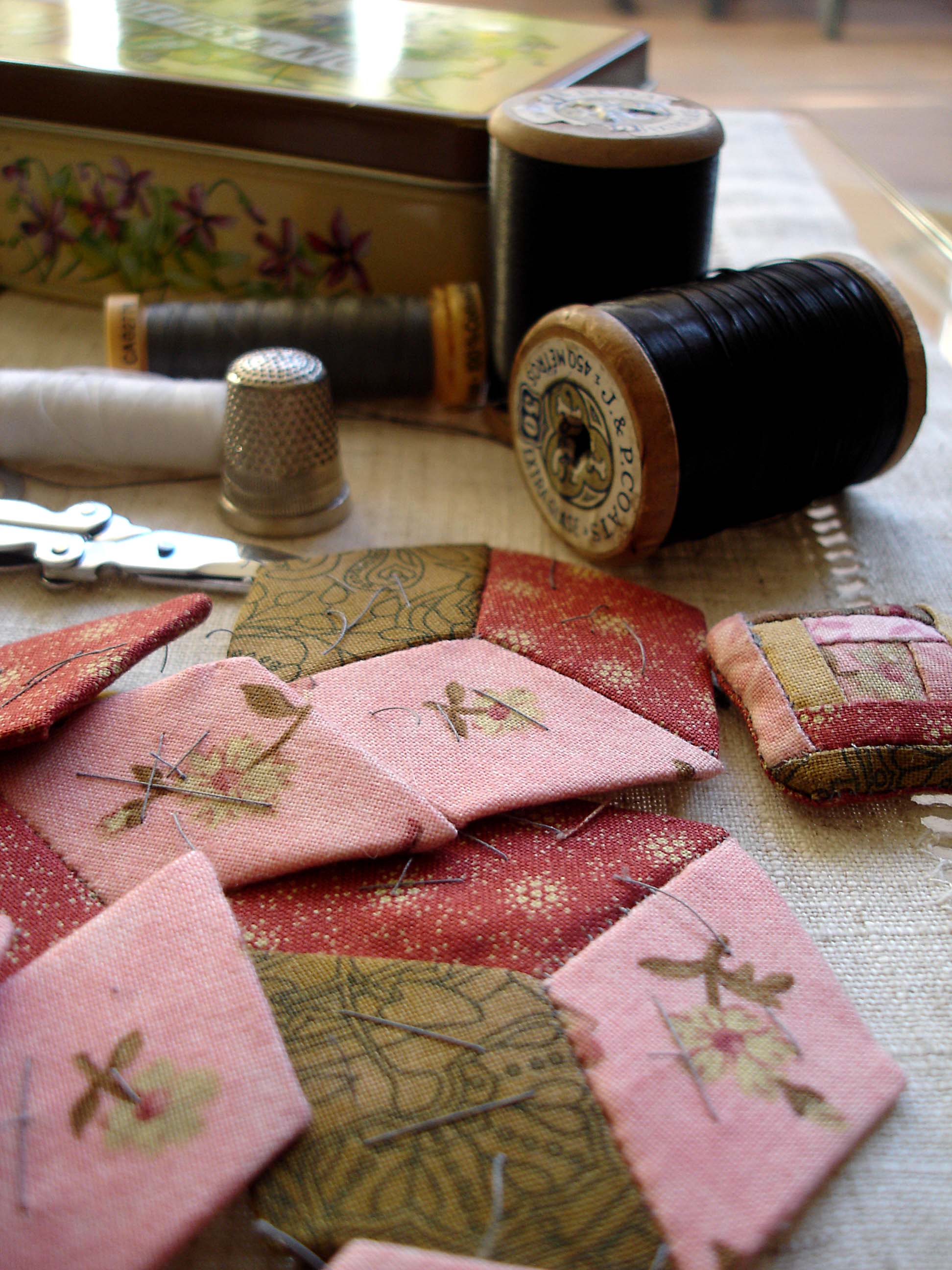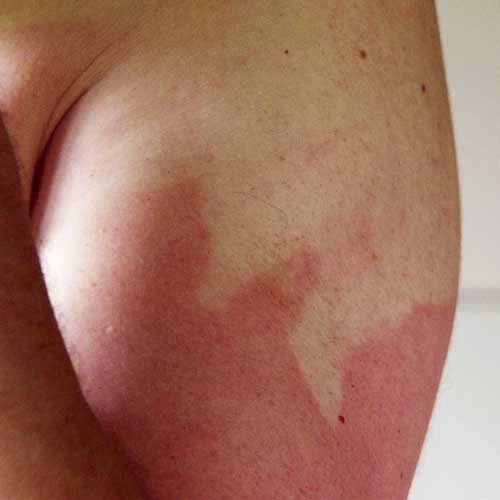The French adjective biscornu means wonky, skewed, irregular, or – if taken literally – twice-horned. The English adjective biscornu doesn’t exist, because English is totally unreliable in its use of the vocabulary it has filched from other languages. Like an overconfident teenager with an unfamiliar appliance, we are certain we can get it to work somehow, without bothering to listen to the instructions from those who’ve been using it longer.
English uses biscornu as a noun, meaning a small pincushion made from two squares of material – or, according to Wikipedia, “the boundary of a unique convex polyhedron….a flattened square antiprism”. (And if you understand that, I’m very happy for you.)
They’re usually made from Aida cloth or embroidery linen, with a counted-thread design, but it turns out you can make them from two squares of ordinary cloth. This is a very useful time to employ what quilters call English Paper Piecing.
Continue & Comment


